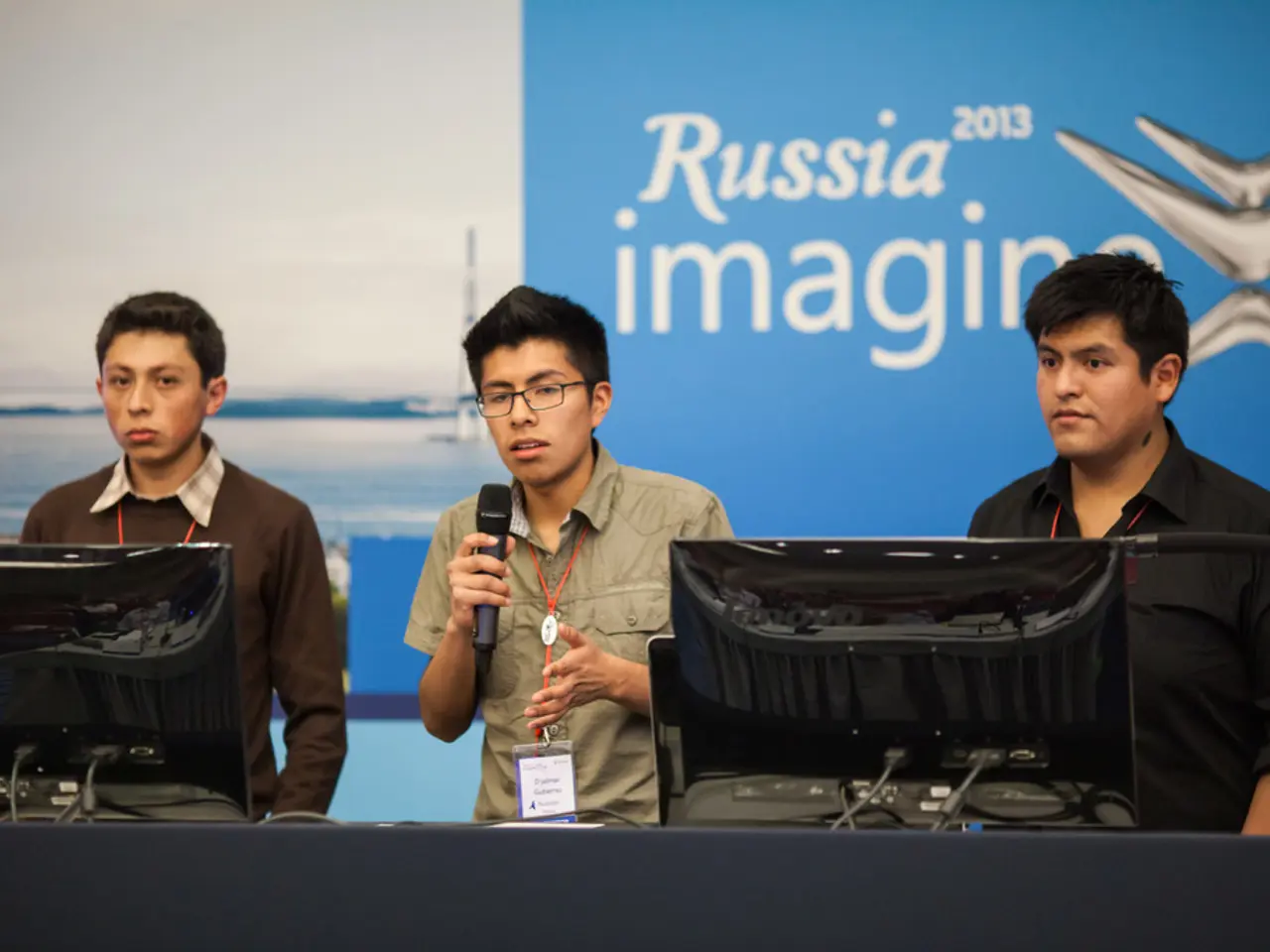Military intends to employ Nvidia technology for AI operations, disregarding US export restrictions
In recent developments, concerns about the illegal acquisition and export controls related to Nvidia AI chips being obtained by Chinese actors for military and AI applications have come to the forefront, highlighting significant national security implications.
Key points:
- Chinese military procurement of Nvidia AI chips: Documents reveal that the Chinese People's Liberation Army (PLA) has issued procurement requests for both banned and permitted Nvidia chips, including the H20 chip, which are used in AI servers and robotic projects such as a "robot dog" with advanced camera technology.
- US export licenses for Nvidia H20 chip to China: After initial export restrictions imposed under both the Biden and Trump administrations, Nvidia obtained US government approval to export the H20 chip to China following high-level talks, including CEO Jensen Huang's meeting with former President Donald Trump in 2025. This move has sparked debate in Washington, with multiple former national security officials warning that exporting AI chips with military potential to China could harm US military and economic advantage.
- Illegal smuggling of Nvidia chips: Two Chinese nationals were arrested in California in August 2025 on charges of illegally smuggling advanced Nvidia chips, including H100 GPUs, into China without required US Commerce Department authorization. These advanced AI chips have clear military significance, and the illegal exports represent direct threats to US national security.
- China's regulatory scrutiny on Nvidia: The Chinese government has recently summoned Nvidia to investigate alleged "backdoor" vulnerabilities or security risks in the US-designed H20 chip provided especially for China under export controls. Nvidia denies these security risk claims. This regulatory action may reflect Beijing's concerns over possible foreign surveillance or other motives, alongside its drive toward domestic semiconductor self-sufficiency.
- US government and industry perspectives: Nvidia maintains that China has sufficient domestic AI chip capabilities, and using restricted US technology in military applications without accompanying software support would be difficult. However, US officials and experts emphasize the risks of advanced AI chip technology strengthening China's military modernization if controls are loosened or circumvented.
These developments indicate ongoing tension over export controls, national security risks, and geopolitical rivalry in AI chip technology between the US and China. As the race for AI dominance continues, it is essential to maintain stringent export controls and address illegal smuggling to ensure national security and prevent potential military threats.
What is the outcome of high-level talks between Nvidia and the US government regarding the export of H20 chips to China, and how does this impact the general-news debate on artificial-intelligence technology and politics? In light of illegal smuggling of advanced Nvidia chips to China and China's regulatory scrutiny on the US-designed H20 chip, it remains crucial for technology and national security to remain intertwined in the ongoing US-China competition in AI chip technology.




